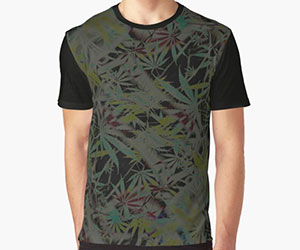The Parliament of Ghana legalized cannabis for industrial and medicinal purposes last week, continuing a trend of marijuana reform on the African continent. With the passage of the Narcotics Control Commission Bill 2019, lawmakers legalized the production of low-THC cannabis, stopping short of full legalization, as MP Ras Mubarak clarified in a statement after the bill was passed.
“What we have approved is not recreational marijuana. It’s important for people to understand the difference. As a country, we have to follow the science and numbers for the good of our country,” Mubarak said[1].
“It is illegal to grow or possess cannabis without a license,” he added. “And also growing cannabis of more than 0.3 percent THC (the one people smoke) remains illegal.”
He urged the public to respect the new law, noting that “there are real concerns about abuse” and that only non-psychoactive cultivars of cannabis would be permitted. Laws against recreational cannabis will still be enforced.
“Parliament hasn’t legalized cannabis for smoking,” Mubarak said. “Possession of cannabis without lawful authority remains illegal. What we have approved is a different strain of cannabis, and vastly different from recreational cannabis which has more than 0.3 THC. This is not a license to smoke.”
“And the law provides for stiffer punishment for people who cultivate or possess without lawful authority,” he added.
Ganja in Ghana
Under current Ghanian law, cannabis is an illegal narcotic substance. Those caught possessing or importing cannabis “shall on conviction be liable to imprisonment for a term of not less than 10 years.”
The passage of the bill transforms Ghana’s Narcotics Control Board (NACOB) into a commission with enhanced powers. It also authorizes the Minister for Interior, in consultation with other government officials including the Minister of Health, to issue licenses for the production of cannabis with no more than 0.3% THC.
The bill gives the Narcotics Control Commission the authority to control and eliminate the trafficking of prohibited drugs to ensure the safety of the public. The measure also provides that drug abuse will be treated as a public health matter and tasks the commission with providing rehabilitation services for those who become addicted.
The bill now heads from Parliament to the desk of President Nana Akufo-Addo, who must approve the measure before it becomes law. Ghana joins several other African nations that have recently enacted cannabis reforms, including Malawi[2], South Africa[3], Zimbabwe, Lesotho, and Zambia.
References
- ^ Mubarak said (www.myjoyonline.com)
- ^ Malawi (hightimes.com)
- ^ South Africa (hightimes.com)
Read more https://hightimes.com/news/world/ghana-legalizes-cannabis-for-medicinal-and-industrial-uses/
Latest
Coronavirus Strikes Massachusetts Cannabis Company Employees
Reassessing the Essential: Cannabis in the Time of a Pandemic
5 Reasons To Try Aspen Valley CBG Flower (30% Off)
High Times Cannabis Cups Go Virtual In Wake Of Coronavirus Pandemic
Drug Enforcement Administration Proposes Plan To Expand Cannabis Research
Ghana Legalizes Cannabis For Medicinal And Industrial Uses
The cheapest legal weed in Canada: Discover these cannabis ‘value brands’
Cannabis and coronavirus: Here’s what you need to know
cannabis designs
The Best Of
WHO Rules CBD Should Not Be a Scheduled Drug

Dr Cristina Sanchez PhD video interview on medical marijuana and cancer

Biochemist Dennis Hill interview; Cannabis oil as a cure for cancer.

The unofficial World Record holder for cannabis smoking part 1




